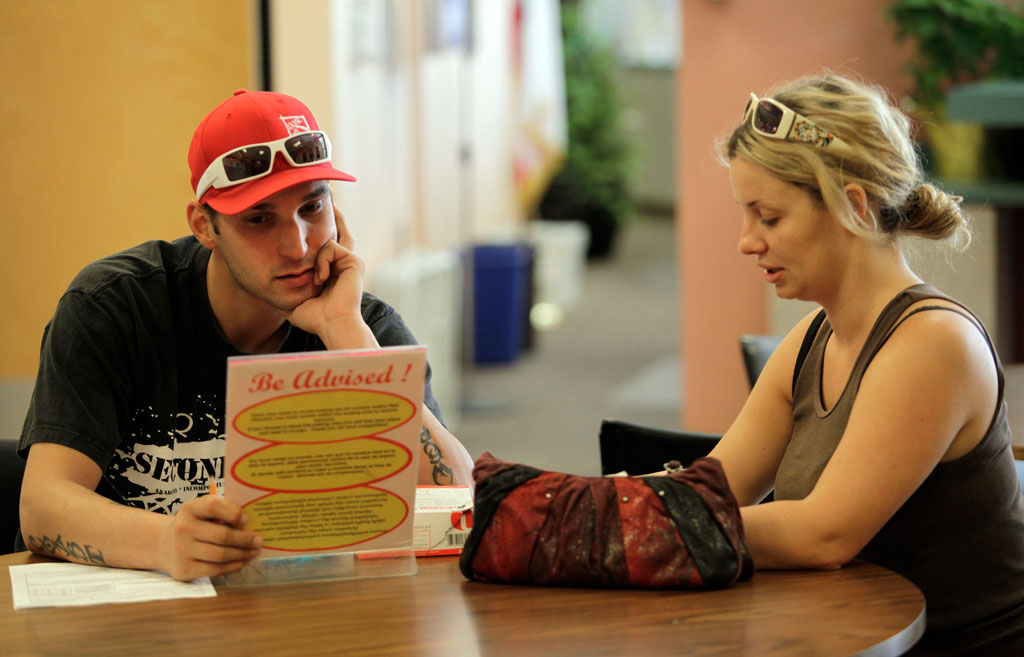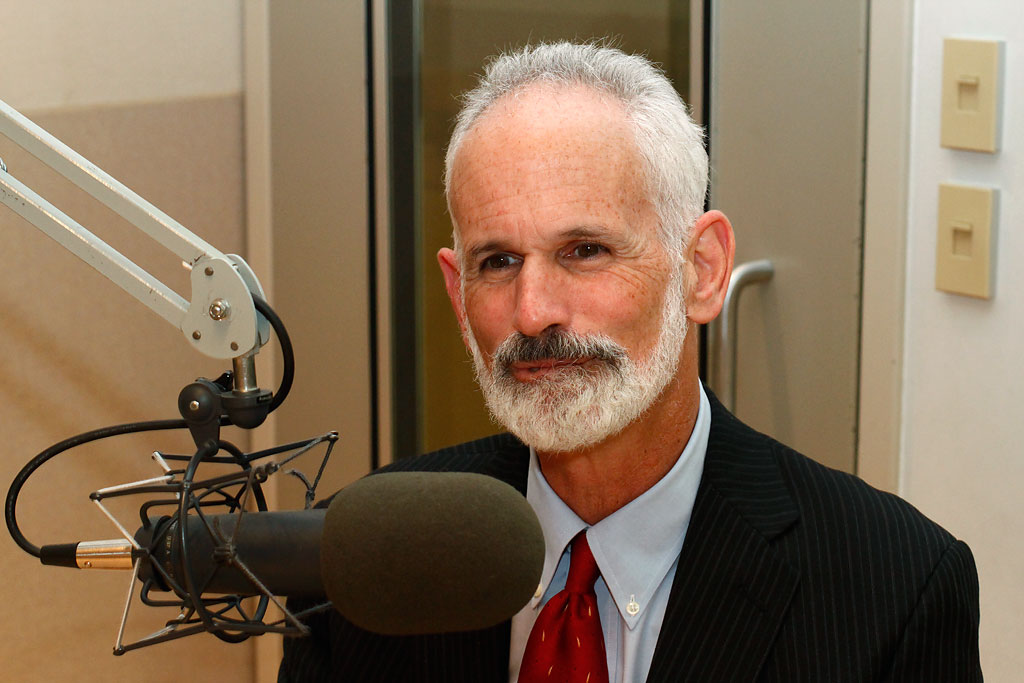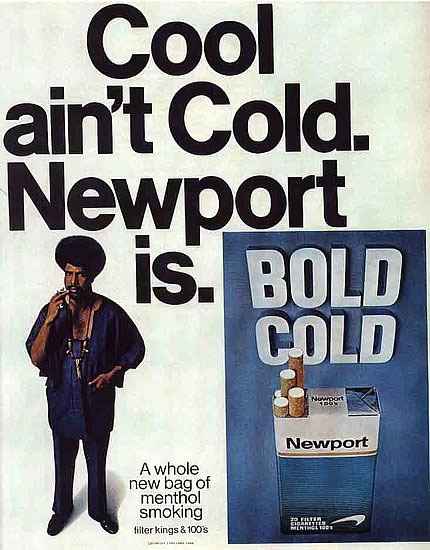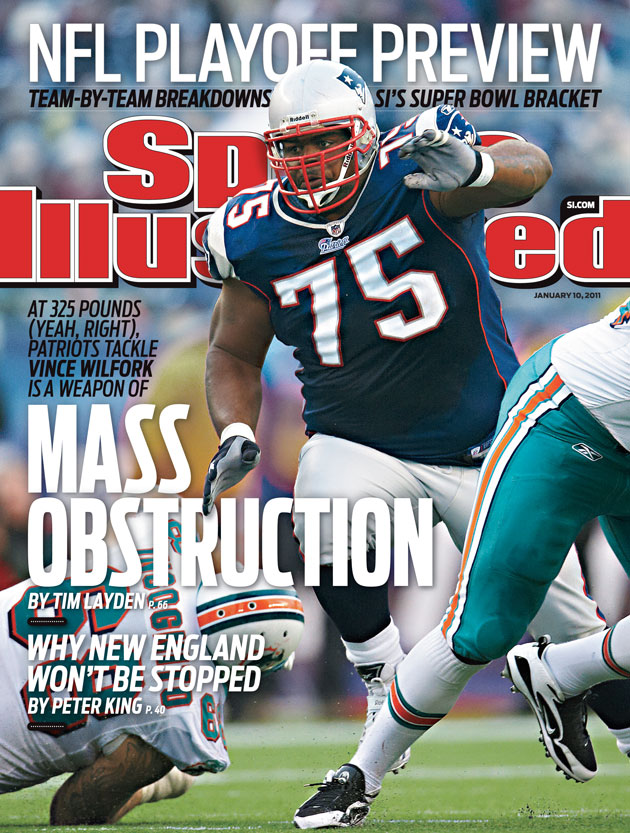Published January 4, 2011

Army veteran Tyler Vinci, 27, is disabled and unemployed. In this August 2010 photo, Vinci and his girlfriend, Fionna Bynres, wait for unemployment counseling in Glendale, Calif. (Damian Dovarganes/AP)
Tori Baird still remembers the knock at her door, back in 2004, when she lived next to Camp Pendleton in California.
“He said, ‘Hi, I know you’ve met my wife, but I need to make some money and get the lights turned on in my house,'” Baird recalled.
It was her neighbor, a badly injured veteran with a crutch under his arm.
“We were pretty shocked. We said, ‘Aren’t you that Marine who got injured?'”
“He said, ‘Yes I am, ma’am, but that just doesn’t matter. Is your husband home?'”
The man’s pickup truck had been repossessed, Baird said, and his wife had run out of money while he was fighting overseas. The Bairds helped the man out that night, and Tori’s husband, Mark, promised to find a solution so that no service member would be begging for work again.
They created HirePatriots.com, a bulletin board for people to post odd jobs for vets. In the first month, Baird said, there were 500 postings.
[pullquote author=”Tori Baird”]”The injured guys really find that it really helps them with their recovery. … Some of these guys are going through 10, 15 operations, and they get a little depressed.”[/pullquote]
Today it’s the Bairds’ full-time job, funded in part by advertising, and the site is expanding — including here, in Massachusetts.
Plymouth native Michael O’Rourke, an Army lieutenant now training in the National Guard, has volunteered to run the local chapter. Now he’s trying to recuit people to post jobs — a room needs painting, papers need filing. (At the moment, only one job is posted on the Massachusetts site.)
“We see a lot of veterans out there that are coming back from Iraq and Afghanistan … really struggling out there, especially in this economy, trying to find employment, trying to make ends meet,” O’Rourke told me.
It’s true. Last month the federal government reported 10 percent unemployment among veterans of Iraq and Afghanistan — compared to 9.1 percent among the non-veteran population.
The Washington Post covered unemployed veterans in a story last week:
While their nonmilitary contemporaries were launching careers during the nearly 10 years the nation has been at war, troops were repeatedly deployed to desolate war zones. And on their return to civilian life, these veterans are forced to find their way in a bleak economy where the skills they learned at war have little value.
That’s how HirePatriots.com hopes to help. Get jobs for vets working in the margins, trying to build a career.
“The injured guys really find that it really helps them with their recovery,” Tori Baird told me. “Some of these guys are going through 10, 15 operations, and they get a little depressed.”
If a vet can make a little bit of money, he or she feels useful again. He might buy flowers for his spouse, toys for his kids — with money he earned.
“It makes them believe that they’re going to work again and function again,” Baird said. “It’s all part of the recuperative process.”




